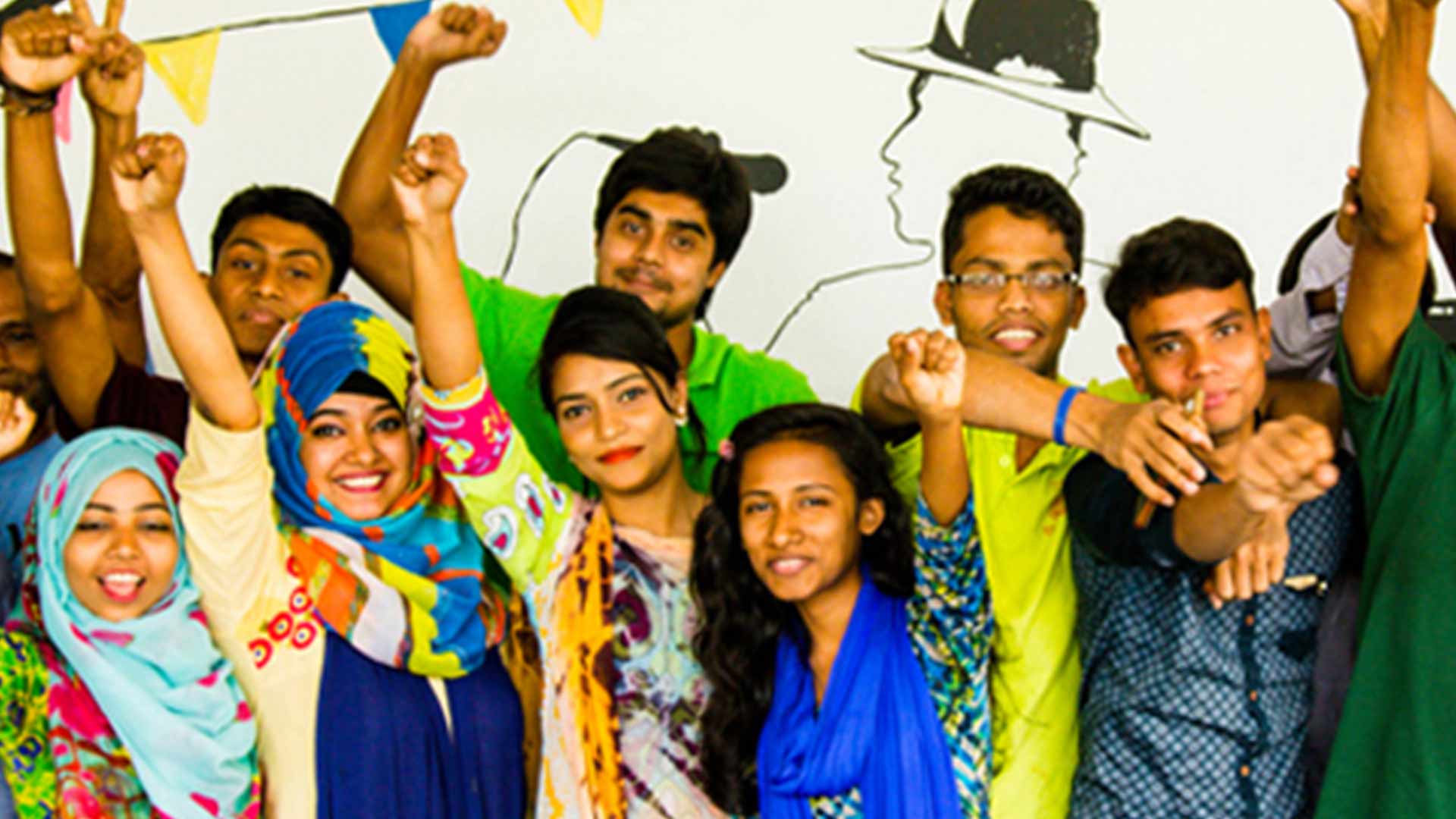Based on the conclusive results of the census and household census, the population of young individuals in Bangladesh amounts to approximately 5.5 million, or approximately 25% of the present population of this nation. Typically, individuals in the transitional phase between childhood and adulthood are referred to as young people. Therefore, individuals between the ages of 15 and 29 constitute the younger generation. This era is peculiar and astonishing. At this stage of development, there is an absence of dread and retreat.
This era is aware of progressing, maintaining a confident demeanour, and triumphing in the struggle for existence. Throughout significant historical events in the contemporary world, it is evident that the presence of youth has played a pivotal role, making an indelible impact. Youth has demonstrated value in various domains, such as social reform, science, politics, philosophy, medicine, and warfare. At the tender age of 19, Emperor Akbar effectively elevated India to a contemporary and expansive nation with his astute political acumen. Similarly, Hazrat Muhammad (peace be upon him) cultivated the younger generation at the tender age of 20 to foster harmony among the Quraish. Pritilata Waddeda, known as the ‘Hillful Fool’, made the ultimate sacrifice for his homeland, whereas Alexander, the Greek hero, achieved global conquest at age 23. Numerous such instances indicate that the younger generation, or youth, holds significant importance for a nation and its overall development. The spine is also present.
According to historical precedent, it is imperative that contemporary society, which heavily relies on technology, stays strong. On the one hand, there is a widespread desire among individuals to effect societal and national transformation through the utilisation of technology. On the other hand, contemporary youth, leveraging the same technological advancements, aspire to swiftly attain the pinnacle of success and swiftly attain superstar status. From a pessimistic perspective, it must be acknowledged that the prevalence of these overnight celebrities is the most significant in contemporary culture. These prominent individuals need more expertise, adequate living conditions, and a lack of interest in the well-being of their nation and society. Their sole resource consists of likes, followers, and views.
Instead of spending time perusing a mere two or five pages of the historical account of the liberation war, a significant portion of the younger generation currently prefers engaging with YouTube videos featuring prominent celebrities. Furthermore, it is crucial to note that these Makal Phal people hold a highly optimistic outlook towards the important idols in their lives. Primarily, these individuals, commonly called celebrities, are capitalising on this phenomenon by utilising social media platforms. Consequently, the younger generation is progressively disengaging from academic subjects without being aware of them, diminishing their ability to think creatively and favouring immediate financial gain and viral success above academic pursuits. Consequently, it is indisputable that, in the absence of immediate and heightened awareness, the lack of proactive measures would inevitably lead to the emergence of a mentally vulnerable younger cohort in the forthcoming years. However, the question is: who is responsible for this current decline in moral standards?
Indeed, we have introduced every individual—a hero Alam, a prince Mamun, a food app, a makeup app, a soda, and various others—to ourselves. Modern media also follows closely after, employing cameras without making any judgements. Every instant, a new event emerges that is highly foreboding for a community.
We are currently investigating effective ways to address this significant societal issue. Undoubtedly, the concept of family awareness. The initial educational institution in a child’s life is their family. He highly values the education he received from his family in his later years. In addition to schools, colleges, and universities. It is imperative to address these issues and their corresponding resolutions expeditiously. It is essential to promptly implement measures to prevent the erosion of native culture among the younger generation, as they increasingly gravitate towards foreign subcultures. The paramount objective is to establish a robust and secure political and social milieu wherein the younger generation can freely articulate their viewpoints without apprehension.
The ‘Youth Matters Survey 2023’ conducted by the Bangladesh Youth Leadership Centre (BYLC) and Peace and Justice Centre of BRAC University revealed that a significant majority of young individuals, precisely 71.5 percent, have a lack of confidence in their ability to openly articulate their viewpoints in public settings. The poll was administered to individuals aged 16 to 35 on several social media platforms. In this scenario, it is inherent that the younger cohort, instead of expressing their viewpoints or engaging in activities that may lead to negative consequences, tends to gravitate towards these prominent individuals on social media platforms, readily facilitated by the presence of cameras. I aspire to achieve viral status.
However, it should be noted that the younger generation represents the future. They represent the prospective leaders of a nation. If the younger generation deviates from the correct path, there is a potential risk of a state or nation being wholly eradicated. In light of the above, it is imperative to prioritise moral education, underscore the significance of self-education, destigmatize political matters, foster a research culture, engage in extensive reading, and embrace virtuous practices. They are motivating young people. As the youth are exposed to a favourable atmosphere and can exercise freedom of expression, they will increasingly distance themselves from these illusions. Eventually, our young generation will gradually encounter genuine role models.

